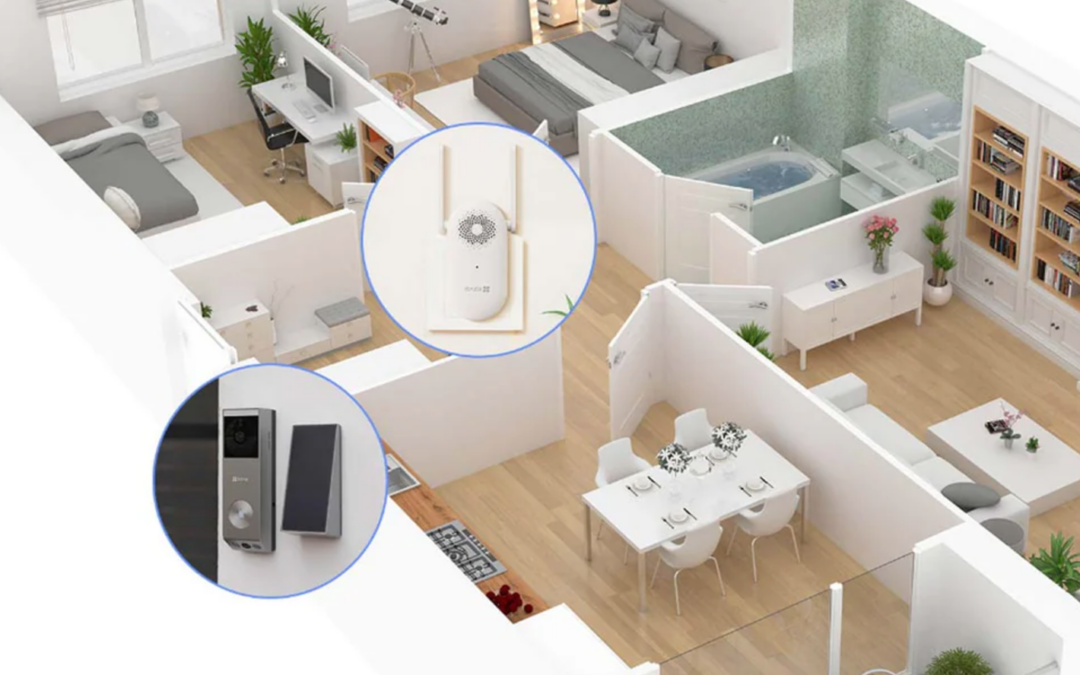In a world increasingly dominated by smart technology, where even your fridge might know more about your habits than your friends, the debate over privacy is more heated than ever. Smart home devices, like video doorbells and intelligent thermostats, promise convenience and security. But critics argue that this promise may come with a hidden price: your privacy. Among these devices, smart doorbells—such as the popular smart home video models—have become a lightning rod for controversy. Are these gadgets really safeguarding your home, or are they secretly surveilling you and your family?
The Rise of Smart Doorbells: A Convenience Revolution
Smart doorbells, like Eve, Ring, and Nest, have revolutionised home security. Equipped with high-definition cameras, motion detectors, and two-way communication features, they allow homeowners to monitor their front doors from anywhere. The appeal is clear: no more unanswered deliveries or surprise visitors. In an increasingly uncertain world, these devices provide a sense of control and reassurance.
Companies like EzViz market these products as essential tools for modern living. They promise encrypted data storage, user control over video footage, and the ability to monitor your property in real time. But not everyone is convinced that the trade-off is worth it. Critics claim that the promise of security is a Trojan horse for a far more invasive purpose: surveillance capitalism.
Conspiracy or Concern? A Closer Look
Conspiracy theorists have been vocal in suggesting that smart devices like Eve’s doorbells are not just tools for convenience—they are potential spies. While some of these claims may sound exaggerated, they often stem from genuine concerns about data privacy and security.
Data Collection: A Silent Observer?
Many smart devices collect vast amounts of data. In the case of doorbells, this can include video footage of your property, conversations recorded through two-way audio, and even metadata about when and how the doorbell is used. While companies like Eve claim to store data locally or encrypt it, the potential for misuse exists. Could this data be sold to advertisers, shared with law enforcement, or hacked by malicious actors?
Law Enforcement Partnerships
A major controversy surrounding smart home video doorbells especially those made globally, is their partnerships with law enforcement agencies. Critics argue that these collaborations create a backdoor for surveillance, allowing police to access footage without a warrant. While Eve has stated that it prioritizes user privacy and does not engage in such partnerships, skepticism remains. The question is whether this level of surveillance sets a dangerous precedent for overreach.
Hacking Risks
Another genuine concern is the vulnerability of these devices to hacking. Security breaches could give malicious actors access to live footage of your home, potentially endangering your family. While companies strive to enhance security, no system is entirely foolproof, leaving users exposed to potential threats.
The Business Model: You Are the Product
The growing unease with smart devices stems largely from the business models of tech companies. Many tech giants rely on data monetization to generate revenue. While companies like to emphasise their privacy-first approach, others in the industry have been less transparent. For instance, Amazon’s Ring has faced lawsuits alleging improper data sharing and privacy violations.
Critics argue that these devices turn users into unwitting participants in a vast surveillance network. Footage from doorbells not only monitors your property but can also capture passersby and neighbors, raising ethical questions about consent and the scope of surveillance.
The Surveillance Society: Beyond Conspiracy
While some claims about smart doorbells may border on paranoia, the broader issue of living in a surveillance society is real. Privacy advocates warn that the proliferation of these devices normalizes surveillance, making it a routine part of daily life. This cultural shift has profound implications, from eroding personal freedoms to fostering a climate of mistrust.
Even if smart home security companies remain committed to privacy, the larger ecosystem of interconnected devices—combined with governmental interests—makes the issue complex. The lines between safety, convenience, and surveillance become increasingly blurred.
Are There Solutions?
For those worried about their privacy, there are ways to mitigate risks while still enjoying the benefits of smart devices:
Choose Privacy-Focused Brands
Opt for brands like Ezviz that prioritise local data storage and encryption. Research the company’s policies and track record on privacy.
Understand Permissions
Regularly review app permissions and device settings to ensure you’re not sharing more data than necessary. Disable unnecessary features like cloud storage if it isn’t essential to you.
Update Firmware
Keep your devices updated to ensure you have the latest security patches. Older software is more vulnerable to hacking.
Limit Data Sharing
Avoid linking your smart devices to unnecessary third-party services. This reduces the number of entities with access to your data.
Advocate for Transparency
Support legislation that requires companies to disclose how they use your data and limits the extent of law enforcement access.
What’s the Verdict?
Is your smart home video doorbell spying on you? The answer lies somewhere between conspiracy theory and legitimate concern. While there’s no evidence to suggest that smart doorbells or similar devices actively spy on their users in a malicious sense, the broader context of data collection and surveillance capitalism raises important questions.
The debate highlights a critical issue of the modern era: the balance between convenience and privacy. As consumers, we must remain vigilant, questioning the trade-offs of adopting smart technology. The allure of a smarter home is undeniable, but it’s essential to ensure that the security promised by these devices doesn’t come at the expense of your most personal asset—your privacy.
Ultimately, whether your smart doorbell is a helpful guardian or an uninvited spy depends largely on the choices you make as a user and the policies enforced by the companies behind them.














